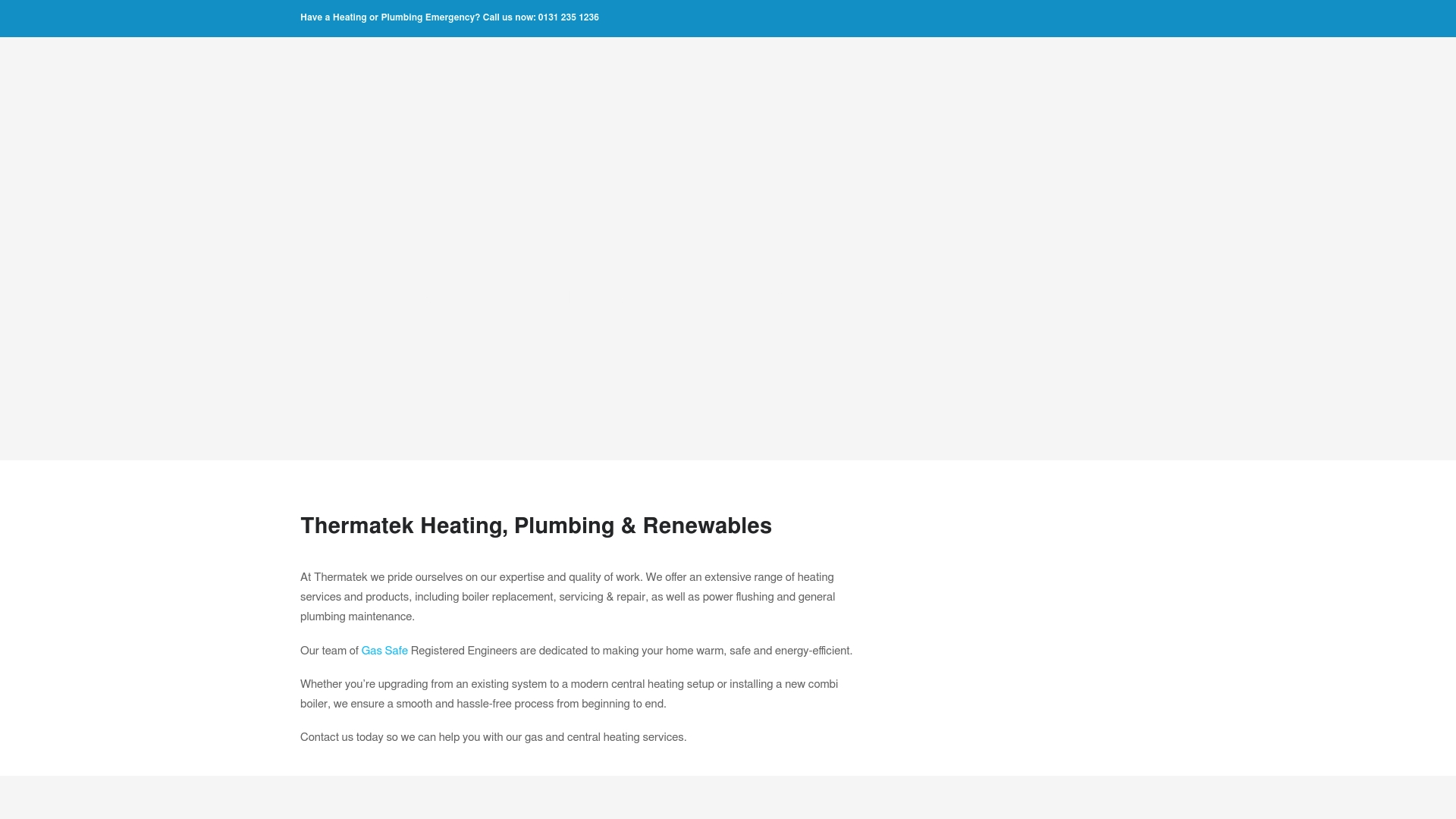Understanding Building Regulations for Boilers
Every modern home relies on a boiler to stay warm and safe, but the rules governing their installation are far from basic. Some people are surprised to learn that boiler regulations directly influence carbon emissions and are mandatory for every new installation, with penalties for non-compliance. Many assume these rules are mere paperwork, yet the true impact reaches much further, affecting not just safety but how future-ready your heating system can be.
Table of Contents
- What Are Building Regulations For Boilers?
- Why Building Regulations Matter For Boiler Safety
- How Building Regulations Impact Heating Systems
- Key Concepts Of Boiler Compliance And Standards
Quick Summary
| Takeaway | Explanation |
|---|---|
| Building regulations ensure boiler safety | These regulations protect lives and property by enforcing stringent safety standards for boiler installations. |
| Compliance with standards is mandatory | Installers must adhere to specific technical requirements and obtain necessary certifications to ensure safe installations. |
| Regulations promote energy efficiency | Building regulations mandate minimum performance levels, encouraging the development of advanced, energy-efficient heating solutions. |
| Professional installation is crucial | Only qualified professionals should install boilers, ensuring compliance with regulations and reducing safety risks. |
| Ongoing advancements in technology | Regulations drive innovation, compelling manufacturers to create sustainable, low-carbon heating technologies for the future. |
What are Building Regulations for Boilers?
Building regulations for boilers represent a crucial framework of statutory requirements designed to ensure safety, efficiency, and environmental standards in heating system installations across residential and commercial properties. These comprehensive guidelines establish precise technical specifications that all boiler installations must meet, protecting homeowners and occupants from potential risks associated with improper heating system setup.
The Purpose of Building Regulations
Building regulations for boilers serve multiple critical objectives. They are not merely bureaucratic rules but comprehensive safety protocols that protect both property owners and residents. The primary goals include:
- Ensuring the safe installation of heating equipment
- Preventing potential carbon monoxide risks
- Maintaining minimum energy efficiency standards
- Protecting structural integrity during installation
- Reducing overall carbon emissions
These regulations, established by governmental bodies, provide a standardised approach to boiler installations that prioritises public safety and environmental responsibility.
The table below summarises the core objectives of boiler building regulations and their significance for homeowners, landlords, and the environment.
| Objective | Significance |
|---|---|
| Safe installation of heating equipment | Prevents accidents, injury, or property damage |
| Prevent carbon monoxide risks | Reduces exposure to a life-threatening and odourless gas |
| Maintain minimum energy efficiency | Promotes cost savings and lowers environmental impact |
| Protect structural integrity | Ensures building safety during installation processes |
| Reduce overall carbon emissions | Contributes to climate change mitigation and cleaner air |
![]() Approved Document J specifically outlines the technical requirements for combustion appliances, including detailed guidance on boiler installations.
Approved Document J specifically outlines the technical requirements for combustion appliances, including detailed guidance on boiler installations.
Compliance and Technical Requirements
Compliance with building regulations involves meeting specific technical standards that cover various aspects of boiler installation. These include precise requirements for:
- Proper ventilation and air supply
- Safe flue and combustion product discharge
- Appropriate insulation and heat retention
- Electrical and gas connection specifications
- Energy efficiency performance metrics
Professional installers must adhere to these stringent guidelines, which often require certification from recognised competent person schemes.
The following table presents key technical requirements that must be met for boiler installations, clarifying their purpose and impact for property owners.
| Requirement | Purpose | Impact on Safety/Efficiency |
|---|---|---|
| Proper ventilation and air supply | Ensures safe combustion | Prevents gas build-up and hazards |
| Safe flue and combustion product discharge | Removes harmful gases from the property | Minimises carbon monoxide risks |
| Appropriate insulation and heat retention | Reduces heat loss | Increases energy efficiency |
| Electrical and gas connection specifications | Meets national installation safety standards | Prevents leaks, shocks, or fires |
| Energy efficiency performance metrics | Sets minimum operational efficiency | Promotes cost-effective heating |
Ultimately, building regulations for boilers represent a critical safeguard, ensuring that heating systems are installed safely, efficiently, and in compliance with national standards. By establishing clear technical requirements, these regulations protect both individual properties and broader environmental interests.
Why Building Regulations Matter for Boiler Safety
Building regulations play a fundamental role in safeguarding lives and properties by establishing stringent safety standards for boiler installations. These regulations are not merely bureaucratic paperwork but a critical protective mechanism that mitigates potential hazards associated with heating systems.
Preventing Life-Threatening Risks
Boiler installations carry significant inherent risks that can have catastrophic consequences if not properly managed. Improper installation or faulty equipment can lead to severe safety issues such as:
- Carbon monoxide poisoning
- Gas leaks
- Potential explosions
- Structural damage
- Electrical malfunctions
According to research from the Gas Safe Register, inadequate gas work and boiler installations pose substantial risks to household safety. The regulations provide a comprehensive framework to minimise these potential dangers.
Technical Standards and Professional Accountability
Building regulations enforce rigorous technical standards that demand professional competence and accountability. These standards ensure that only qualified professionals can undertake boiler installations, creating multiple layers of safety verification. Key accountability measures include:
- Mandatory certification for installers
- Comprehensive technical inspection protocols
- Regular safety assessments
- Mandatory documentation and reporting
- Compliance verification by local authorities
For landlords managing rental properties, understanding these safety requirements is crucial. Our landlord gas safety services provide comprehensive guidance on meeting these critical regulatory standards.
Ultimately, building regulations for boiler safety represent a proactive approach to protecting households. By establishing clear, enforceable standards, these regulations significantly reduce the risks associated with heating system installations, ensuring both immediate safety and long-term peace of mind for property owners and occupants.
How Building Regulations Impact Heating Systems
Building regulations fundamentally transform how heating systems are designed, installed, and operated, creating a comprehensive framework that influences technological innovation, energy efficiency, and environmental sustainability. These regulations go beyond simple technical specifications, acting as a strategic mechanism to drive meaningful improvements in residential and commercial heating infrastructure.
Energy Efficiency and Performance Standards
Building regulations establish strict performance metrics that compel manufacturers and installers to develop increasingly sophisticated heating technologies. By mandating minimum efficiency levels, these regulations encourage the development of advanced heating solutions that consume less energy and produce fewer carbon emissions. Key performance requirements include:
- Minimum thermal efficiency ratings
- Maximum permitted carbon emission levels
- Enhanced insulation and heat retention standards
- Sophisticated modulation and temperature control capabilities
- Compatibility with renewable energy integration
Research from the UK government indicates ongoing efforts to enhance boiler standards, with proposed requirements such as making new gas boilers ‘hydrogen-ready’ from 2026, demonstrating the dynamic nature of these regulations.
Technological Innovation and System Transformation
Building regulations act as a powerful catalyst for technological transformation in heating systems. They create a regulatory environment that:
- Incentivises research and development
- Pushes manufacturers towards more sustainable solutions
- Accelerates the transition to low-carbon heating technologies
- Establishes clear pathways for future energy system adaptations
- Promotes consumer awareness about energy-efficient technologies
For homeowners exploring advanced heating solutions, our heat pump installation services represent a forward-thinking approach aligned with these evolving regulatory standards.
Ultimately, building regulations are not static documents but dynamic frameworks that continuously reshape heating system design. By setting progressively ambitious standards, these regulations drive systemic improvements in energy efficiency, technological innovation, and environmental sustainability, ensuring that heating systems become increasingly intelligent, responsive, and eco-friendly.
Key Concepts of Boiler Compliance and Standards
Boiler compliance and standards represent a sophisticated framework of technical requirements designed to ensure the safe, efficient, and environmentally responsible operation of heating systems. These comprehensive guidelines encompass multiple layers of regulatory oversight, establishing precise benchmarks for installation, performance, and ongoing maintenance.
Technical Certification and Installation Requirements
Technical certification forms the cornerstone of boiler compliance, establishing rigorous criteria that professionals must meet to legally install and service heating systems. These requirements demand:
- Mandatory professional qualifications
- Comprehensive safety training certification
- Detailed knowledge of current building regulations
- Proven competence in specific installation techniques
- Regular professional recertification
According to Approved Document J, these standards ensure that only qualified professionals can undertake complex heating system installations, significantly reducing potential safety risks.
Performance and Efficiency Measurement Standards
Performance standards establish precise metrics for measuring boiler efficiency, safety, and environmental impact. These standards evaluate critical aspects such as:
- Thermal energy conversion rates
- Carbon emission levels
- Heat output consistency
- Energy consumption metrics
- Operational reliability
Modern compliance frameworks go beyond basic functionality, demanding that heating systems demonstrate sophisticated technological capabilities. Our boiler installation quote service helps homeowners navigate these complex technical requirements, ensuring complete regulatory adherence.
Ultimately, boiler compliance and standards represent a dynamic regulatory ecosystem that continuously evolves. By establishing clear, measurable guidelines, these standards protect consumers, drive technological innovation, and contribute to broader environmental sustainability goals, transforming heating systems from simple utility appliances into intelligent, responsible energy solutions.

Take the Stress Out of Boiler Compliance in Edinburgh and Midlothian
Struggling to make sense of complex building regulations for boilers? If your top concerns are safety, meeting legal requirements, and avoiding risky installations, you are not alone. Many homeowners and landlords find navigating technical standards, certification, and energy efficiency a real challenge. The article highlights how crucial it is to get every detail right for both peace of mind and property safety. That is why trusting a qualified team becomes essential.

Choose Thermatek, your local experts in safe boiler installation and compliance. Every service is carried out by Gas Safe Registered engineers who know the latest building regulations inside out. From helping you understand intricate requirements to providing reliable boiler replacement and installation or landlord gas safety checks, you get support at every step. Discover the comfort and security of a professionally installed system by visiting our main website today. Act now to secure an energy-efficient, fully compliant heating solution that lasts.
Frequently Asked Questions
What are building regulations for boilers?
Building regulations for boilers are a set of statutory requirements that ensure safety, efficiency, and environmental standards in the installation of heating systems. They establish technical specifications that protect homeowners and occupants from risks associated with improper boiler setups.
Why are building regulations important for boiler safety?
Building regulations are essential for boiler safety as they mitigate life-threatening risks such as carbon monoxide poisoning, gas leaks, and potential explosions. They create a framework of safety protocols to ensure that boiler installations are completed correctly and safely.
What technical requirements must be met for boiler installations?
Boiler installations must satisfy several technical requirements, including proper ventilation, safe flue discharge, adequate insulation, and compliance with specific energy efficiency performance metrics. These standards ensure that heating systems operate safely and effectively.
How do building regulations impact the efficiency of heating systems?
Building regulations contribute to the efficiency of heating systems by enforcing performance standards that require technological advancements in boiler design. These regulations encourage the development of energy-efficient solutions, reducing carbon emissions and improving overall energy consumption.

